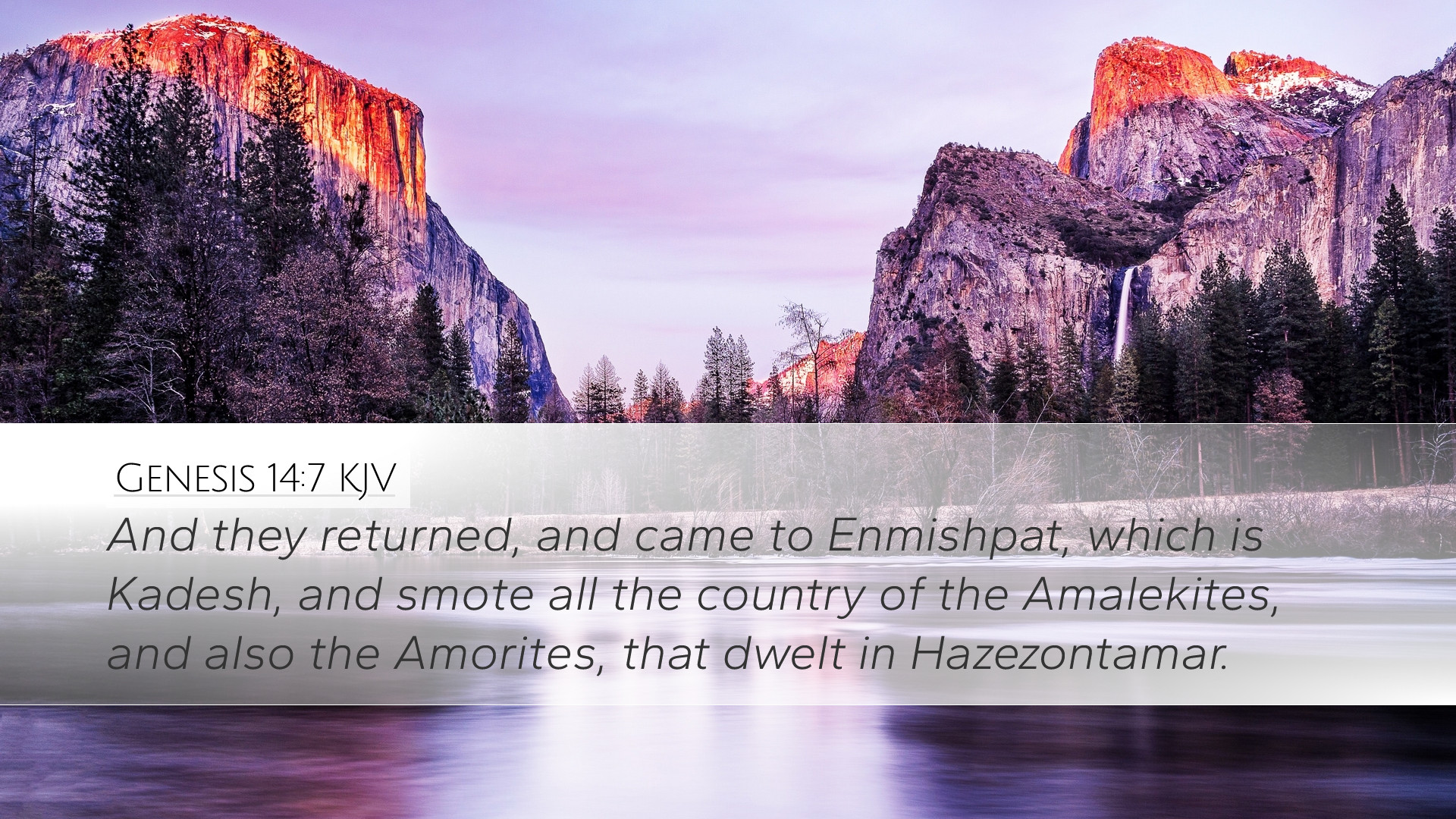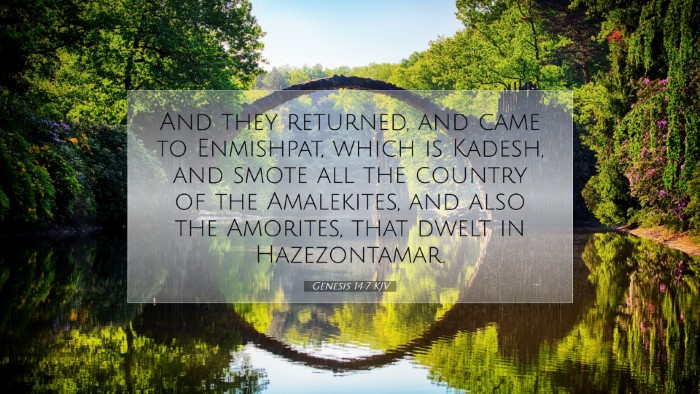Commentary on Genesis 14:7
Bible Verse: Genesis 14:7 - "And they returned, and came to Enmishpat, which is Kadesh, and smote all the country of the Amalekites, and also the Amorites that dwelt in Hazezontamar."
Introduction
This verse marks a significant moment in the narrative of Genesis, particularly within the context of the larger story of Abram (later Abraham) and the conflicts of his time. Not only does it highlight the geographical locations relevant to the conflict between the four kings and the kings of Sodom and Gomorrah, but it also establishes Abram's allies and adversaries in the unfolding drama.
Contextual Overview
Genesis 14 depicts a battle involving several kings, a conflict that serves both as historical narrative and theological lesson. The return of the kings from war emphasizes themes of deliverance, moral justice, and the fulfillment of God's promises within the land of Canaan.
Historical Significance
- Geographical Locations: Enmishpat (Kadesh) represents a pivotal location often associated with judgment and decision-making. It is here that the kings regroup and plan their next steps.
- The Amalekites and Amorites: These groups were significant adversaries in the land of Canaan. The passage foreshadows future encounters Abram’s descendants will have with them. The striking of these societies is not merely of military significance but also indicative of divine justice.
Theological Insights
Past commentary on this verse revolves around several key theological themes:
- Divine Justice: The actions of the allied kings against the Amalekites and the Amorites can be seen as God’s judgment against wicked nations. It highlights God’s continued sovereignty throughout history, using human agents for divine purposes.
- Faith and Obedience: Abram’s willingness to engage in battle was not for personal gain but rather to rescue Lot and restore peace to his relatives. This reflects the faithfulness of Abram as a leader and a believer who responds to the call of duty.
- God's Promises: The victory outlined in this chapter serves to reinforce the promises God made to Abram earlier, affirming that he would be a great nation, which is evidenced by his decisive actions and alliances.
Commentary Excerpts
Matthew Henry:
Henry emphasizes the act of returning to Enmishpat as an indication of strategic leadership. Abram's actions herald a theme of righteousness that is established when he strikes down the enemies who oppress the innocent.
Albert Barnes:
Barnes elaborates on the historical implications of the actions against the Amalekites and Amorites, pointing out that their defeats are not just physical conquests but moral victories, demonstrating God's providence in safeguarding His people.
Adam Clarke:
Clarke notes the significance of the location, linking it to divine encounters and decisions within the broader biblical narrative. He suggests that the fighting against immoral nations is a template for believers today in their own battles against sin and corruption.
Application for Today
This verse invites modern-day believers to reflect on several important questions:
- Are we vigilant against the ‘Amalekites’ and ‘Amorites’ of our time? Just as Abram defended his kin, we are called to uphold justice and protect those in need within our communities.
- What does it mean to act in faith and obedience today? Abram’s actions were prompted by loyalty and love. In a contemporary context, our responses should similarly reflect our commitment to God and our fellow human beings.
- How can we see the sovereignty of God in our battles? Recognizing God’s hand in our lives encourages us to trust His plans, even when the conflicts we face seem overwhelming.
Conclusion
Genesis 14:7 serves as a bridge connecting historical battles with profound theological truths. As pastors, students, theologians, and scholars dive into this verse, its layers of meaning offer rich opportunities for understanding God's ongoing story in the world and our place within it. The lessons stemming from Abram's actions and God's promises resonate deeply within the heart of faith, challenging us to engage in our own narratives as faithful disciples.


